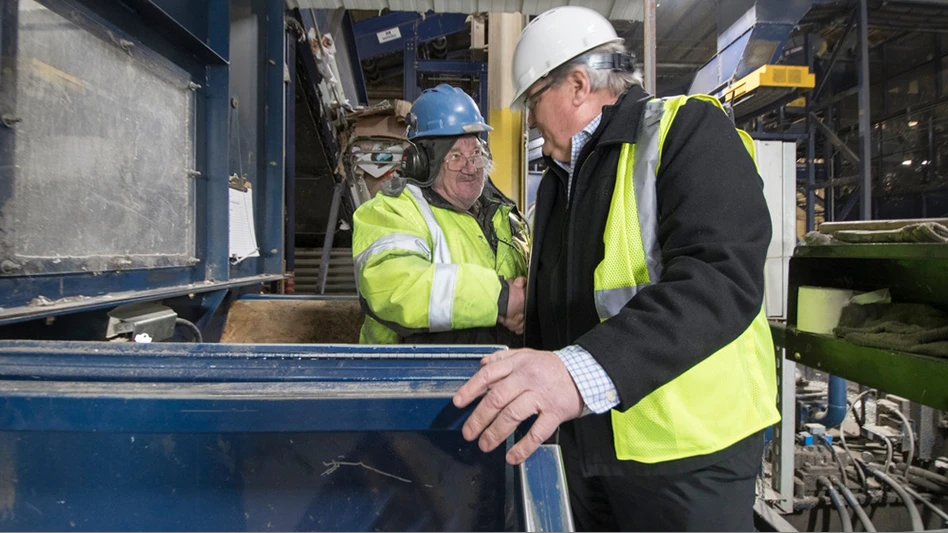
Commercial auto insurance rates continue to rise across the country as a result of costly accidents, “nuclear judgements,” and the overall deterioration of insurance underwriting profits in this line of business.
According to Business Insurance, commercial insurers have seen steep increases, as premiums have risen anywhere from a minimum of 25 percent to well over 100 percent in recent years, and it is getting worse in 2020. Waste companies are feeling massive pressure from these increased insurance premiums, which in turn, erodes companies’ EBITDAs to the point that it is driving some operators to consider selling or even closing their doors.
Traditional methods of combating rising auto insurance premiums and shopping around is not necessarily going to adequately prevent across the board increases when it’s time for waste operators to renew their commercial auto insurance. Instead, the most critical element for combating these increases is for operators to ensure their insurance agent has a specific plan and can tell underwriters a compelling story of how a given hauler is working to improve operations.
Most insurance agents take the easy path of simply submitting the business renewal opportunity to multiple insurance companies without any specific action plan. It’s at this time that the insurance agent likely explains they have sent submissions to multiple insurance companies, but all of them either declined or offered terms materially more expensive. As a consequence at renewal time, waste operators have little time and few options for finding another solution and are forced to pay these elevated premiums. This isn’t an inevitable conclusion when renewing commercial insurance, it is the result of the insurance agent not doing an adequate job preparing underwriters properly.
In this troubling time for auto insurers, insurance agents must utilize inspection data from the Department of Transportation (DOT) to help tell a positive and compelling story for their clients, particularly if this data is trending in a negative direction.
The Compliance, Safety, Accountability (CSA) program overseen by the Federal Motor Carrier Safety Administration (FMCSA) is designed to make DOT inspections easily analyzed. CSA is FMCSA’s data-driven safety compliance and enforcement program designed to improve safety and prevent commercial motor vehicle crashes, injuries and fatalities. The CSA consists of three core components: the Safety Measurement System (SMS); interventions; and a Safety Fitness Determination (SFD) rating system to determine the safety fitness of motor carriers.
The system is updated monthly with new inspection data from roadside inspections. The inspection data is lumped into the following categories: Crash Indicator, Hours of Service, Unsafe Driving, Controlled Substances, Driver Fitness, Hazmat Related (if applicable), and Vehicle Maintenance. To view this information, which is available for every company, all one needs to do is visit the FMCSA website.
While waste and recycling companies should be diligent in reviewing this data in-house, the company’s insurance agent must especially be diligent in pulling these reports and walking his or her client through the process of how it can be improved upon. Moreover, they must be aggressive during renewal time to help avoid the commercial auto premium increases. Operators should look to partner with insurance agencies experienced in representing waste and recycling companies. Not only will these insurance companies know the ins and outs of an operator’s business, they’ll be able to share best practices for fleet maintenance and other safety-related matters to ensure they are proactively doing everything to combat high insurance premiums.
Commercial auto underwriters will check these scores prior to even opening a submission from a commercial insurance agent. Checking these scores is comparable to a lender checking a FICO score before going through the approval process for a loan—it’s not the only piece of relevant information, but it can give quick insight into a company. If one has a poor credit history, or has filed for bankruptcy, there is a low chance of being eligible for a loan or being able to pay favorable terms for the loan if it is ultimately approved. The same is true for commercial auto insurance. If one has a history of poor DOT inspections and does not have a story or plan of attack for counteracting this, they’ll likely be subject to higher insurance premiums and limited insurance options.
Commercial auto underwriters place more emphasis on CSA scores than on a company’s loss history, which immediately can correlate to massive commercial auto premiums. Additionally, if there is a history of poor inspections paired with an unfavorable loss history, the premiums can rise to unprecedented levels. Simply put, insurance companies are concerned with companies that have poor DOT inspection histories, and the potential for large judgements or settlements as a result of an auto accident in an area of prior violation is significant. When accidents or other incidences occur, courts can easily pull inspection data that may show the company in question was negligent for similar infractions in the past. If the company has not done anything to remedy its CSA violations, this is a recipe for disaster.
There are two inspection categories that are routinely above acceptable thresholds in the waste space: maintenance and safety-related history. A fleet maintenance program must begin with operators performing pre- and post-trip checks. If these checks are ignored or service issues are not fixed after they have been identified, inspections will not be favorable. All violations are assigned a severity weight that reflects the crash risk based on a scale of 1 to 10, with a score of 10 representing the highest crash risk. For example, violations related to a vehicle’s lights being out are typically categorized under the safety category and may receive a 4 out of 10 violation weight; however, these failures can adversely impact the CSA scores quickly. This is why companies must institute a zero-tolerance policy for conducting fleet inspections and be diligent in performing any subsequent repairs.
Beyond maintenance, the top two safety-related items in terms of DOT violations include crashes and unsafe driving. These are directly correlated to each other and are reflective of employee behavior behind the wheel. Driving carelessly and speeding is a choice. A driver with a history of these infractions can massively contribute to DOT violations. More importantly, unsafe driving can lead to severe injuries to drivers and put the lives of third parties in jeopardy.
Employers can improve driver behavior by implementing training programs that emphasize defensive driving strategies, active driving techniques and training methods for safer operation. A way to ensure employees understand the importance of safe driving is by having management conduct in-person ridealongs and offer feedback on performance.
When there is an accident, companies must focus on what countermeasures may be able to be taken to prevent such accidents in the future. Any such countermeasure a company takes must be expressed to the insurance community when an insurance submission goes out from an insurance agent. This reinforces the importance of insurance agents being able to tell the prospect’s or client’s story to the insurance community as opposed to just sending submissions for the renewal.
All commercial auto underwriters will review DOT violation activity and then immediately ask the insurance agent, “What has the insured done to prevent reoccurrence?” If there is a compelling story that shows action and intent to improve on the part of the hauler, it can help overcome any adverse perceptions of the account that might otherwise be held on to.
We are in a commercial auto insurance crisis. Waste operators can either fix underlying safety and maintenance issues or be forced to reckon with the consequences. As an insurance agent, we do not see any positivity on the horizon in the next three to five years for commercial auto premiums to lower. Waste companies are at a particular disadvantage because of the preconceived notions of this sector being a tough class of business and having adverse losses experienced by the commercial auto underwriting community.
By having a history of violations as evidenced in their FMCSA/CSA scores, companies will experience unfavorable commercial auto insurance renewals. In fact, it may make it challenging to obtain commercial auto insurance at all. Insurance agents must work with their clients to help understand CSA scores, implement best-in-class countermeasures for reoccurrence and present the best story possible to the underwriter community. The effort an insurance agent puts into this process, alongside the hauler’s commitment to improving its CSA scores, will have a massive correlation to the commercial auto insurance premiums experienced at renewal time. As always, getting ahead of any issues and having proactive, rather than reactive, discussions with an insurance agent can help waste operators lay the groundwork for more favorable insurance renewal processes and premiums down the line.
This article originally ran in the July/August issue of Waste Today. Jimmy Whitehair is a principal, and Will Denbo is a managing partner, at Brentwood, Tennessee-based Commercial Insurance Associates LLC.
Latest from Waste Today
- Defunct electronics recycling companies ordered to pay $3M for hazardous waste violations in Ohio
- Tacoma, Washington, launches smart camera technology pilot
- Pride Disposal sees efficiency gains with Hydrotex BIO-XPL hydraulic fluid
- Techbros launches AI-integrated electronics processing facility
- Understanding interchange optimization
- Account Updater: Keeping customer credit cards always up-to-date
- Understanding credit card fees
- CDRA names new executive director





